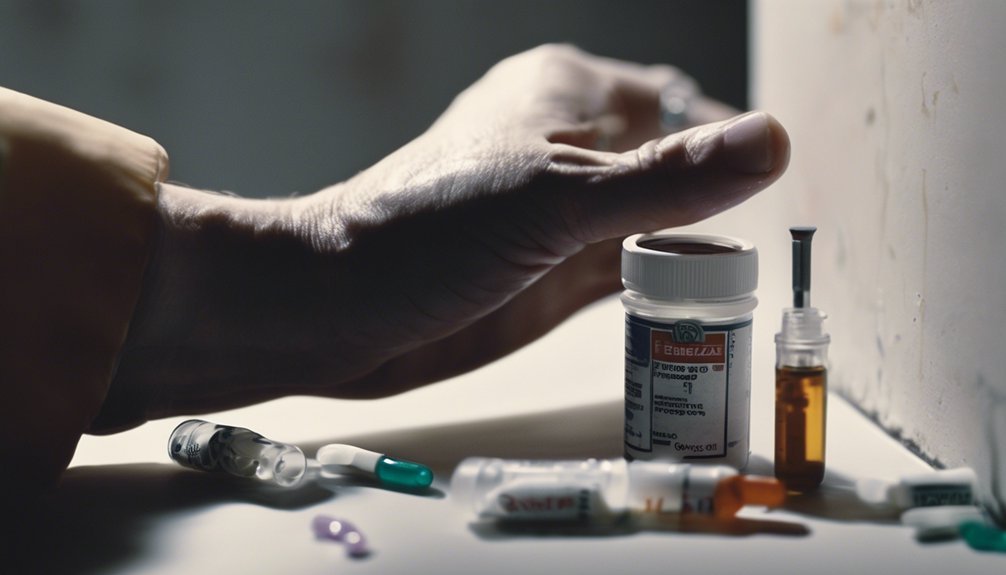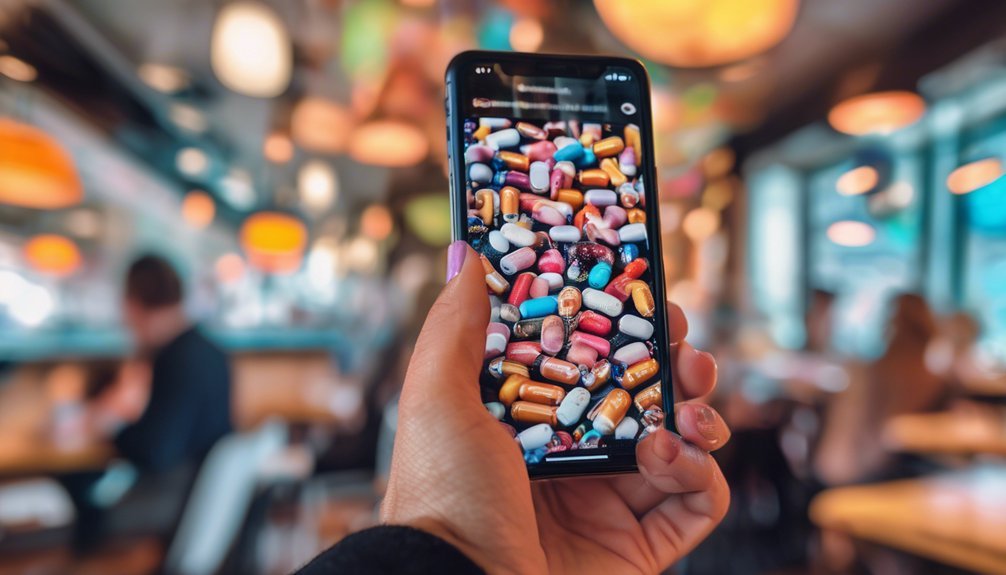Self-administering fenbendazole without clinical proof raises critical ethical questions. It’s essential to consider how individual choices can impact not just personal health, but also public safety. With a rise in alternative treatments, many may overlook the importance of scientific validation. This situation creates an environment where misinformation thrives, potentially leading to harmful outcomes. What does this mean for the principles of evidence-based medicine and patient education?
Key Takeaways
- Self-administration of fenbendazole without clinical proof risks misdiagnosis and overlooking serious health conditions that require professional intervention.
- Anecdotal success stories may mislead individuals, lacking scientific validation and potentially leading to harmful health outcomes.
- Variability in dosage and product purity outside regulated environments raises concerns about safety and long-term effects of unverified treatments.
- Ethical implications arise from the potential harm to individuals and communities when unproven treatments are promoted without rigorous evidence.
- Healthcare professionals have a responsibility to advocate for evidence-based practices to protect patient safety and ensure informed health decisions.
Understanding Fenbendazole and Its Intended Use

Fenbendazole, a broad-spectrum anthelmintic, is primarily used in veterinary medicine to treat parasitic infections in animals, particularly in dogs and livestock.
Its mechanism involves inhibiting the formation of microtubules in parasites, disrupting their metabolism and leading to their death. This targeted approach offers therapeutic applications in managing various parasitic conditions, ensuring the health of treated animals.
While its efficacy in veterinary settings is well-documented, some individuals seek to self-administer fenbendazole for human conditions, often driven by anecdotal evidence.
Some individuals attempt to use fenbendazole for human conditions, motivated by anecdotal evidence despite a lack of clinical support.
However, without clinical proof supporting these uses, ethical concerns arise. It’s crucial to prioritize safety and rely on established medical guidelines when considering any treatment, ensuring that you serve both yourself and others responsibly.
The Rise of Alternative Treatments
As the search for effective treatments expands, many individuals are increasingly turning to alternative options outside conventional medicine. This rise in alternative therapies reflects a growing desire for patient empowerment, allowing you to take control of your health decisions.
With dissatisfaction in traditional treatments, people are exploring options like herbal remedies, dietary changes, and supplements. While these alternatives can offer hope and a sense of agency, it’s crucial to approach them with caution.
The lack of rigorous scientific validation often leaves you navigating uncharted territory, which can lead to misinformation or harmful consequences. Understanding the implications of these choices becomes essential, as you weigh the potential benefits against the ethical concerns surrounding self-administration of unproven treatments like fenbendazole.
Anecdotal Evidence vs. Scientific Validation
While many individuals share personal success stories about using fenbendazole as an alternative treatment, these anecdotes often lack the rigorous scientific validation necessary to establish its efficacy and safety.
Anecdotal evidence, although compelling, has inherent limitations that make it unreliable for widespread application. Personal testimonies can be influenced by various factors, including individual biases and placebo effects, which can skew perceptions of success.
Anecdotal evidence, while persuasive, is often unreliable due to biases and placebo effects that distort true outcomes.
Without scientific rigor—such as controlled trials and peer-reviewed studies—it’s difficult to ascertain whether fenbendazole is genuinely effective or simply a matter of coincidence.
For those looking to serve others, understanding these distinctions is crucial, as promoting unverified treatments can lead to unintended harm. Relying solely on anecdotal evidence may compromise the well-being of vulnerable individuals seeking help.
Risks of Self-Medication

Self-medication, particularly with compounds like fenbendazole, poses significant risks that can jeopardize your health. When you engage in self-diagnosis, you expose yourself to considerable self-diagnosis risks, as it’s easy to misinterpret symptoms or overlook serious conditions.
Without proper medical guidance, you may misuse medication, leading to adverse effects or drug interactions that compromise your well-being. Medication safety is paramount, and employing unverified treatments can result in ineffective care or worsen your situation.
Furthermore, the lack of professional oversight may prevent you from addressing underlying issues that require immediate attention. Ultimately, prioritizing safety and seeking professional advice is crucial in ensuring that you make informed decisions about your health and the health of those you care for.
The Role of Healthcare Professionals
Healthcare professionals play a crucial role in ensuring safe and effective treatment options for patients considering medications like fenbendazole. They provide essential healthcare guidance, helping you navigate the complexities of drug use and potential alternatives.
By offering evidence-based insights, they empower you to make informed decisions about your health.
Empowering you with evidence-based insights is key to making informed health decisions.
Patient education is equally vital; professionals must clearly communicate the risks and benefits of self-administering fenbendazole. They can address misconceptions surrounding this medication and emphasize the importance of consulting a healthcare provider before starting any treatment.
By fostering a collaborative relationship, healthcare professionals support you in understanding your options and making choices that align with your health goals.
Ultimately, their expertise contributes to safer and more effective patient care.
Informed Consent and Patient Autonomy
The process of informed consent is fundamental when considering treatments like fenbendazole, especially when self-administering. You must engage in informed decision making, weighing the potential benefits against the risks involved.
Personal responsibility comes into play here; you’re accountable for the choices you make regarding your health. It’s essential to thoroughly research fenbendazole, seeking credible sources and understanding its effects. This empowers you to make decisions based on accurate information, rather than assumptions.
The Impact of Misinformation

While you may feel empowered to explore alternative treatments like fenbendazole, misinformation can significantly skew your understanding and decision-making process. Misleading claims circulate widely, often presenting anecdotal evidence as fact, which can lead you to underestimate the risks involved.
This lack of reliable information can compromise your health literacy, making it difficult to discern between credible sources and dubious advice. As you seek to serve others by sharing your findings, it’s essential to prioritize accuracy and critical thinking.
Ethical Implications of Self-Diagnosis
Misinformation not only affects your understanding of treatments like fenbendazole but also raises significant ethical concerns about self-diagnosis.
When you engage in self-diagnosis, you face numerous risks, including misinterpretation of symptoms and overlooking serious conditions. This practice can lead to ethical dilemmas, especially when you bypass professional guidance intended to ensure safe and effective treatment.
Moreover, self-diagnosis may inadvertently contribute to the spread of misinformation, affecting others who might look to you for guidance. You must consider how your choices impact not just your health but also the well-being of those around you.
Consequences of Delaying Conventional Treatments
Delaying conventional treatments can have serious repercussions for your health, as it often allows conditions to progress unchecked.
When you postpone seeking appropriate medical care, you’re essentially delaying diagnosis, which can lead to more advanced stages of illness. As conditions worsen, treatment complications may arise, complicating your recovery and potentially leading to more severe health issues.
You risk facing longer treatment times, increased medical costs, and diminished quality of life.
It’s crucial to understand that while alternative methods might seem appealing, they shouldn’t replace evidence-based treatments. Prioritizing timely medical care not only supports your well-being but also empowers your healthcare providers to deliver the most effective interventions.
Your health deserves the best possible approach, grounded in proven medical practices.
The Importance of Clinical Trials

Clinical trials play a crucial role in advancing medical knowledge and developing effective treatments for various health conditions. By rigorously testing new interventions, these trials help ensure safety and efficacy before public use.
Here are key aspects to consider:
- Clinical Trial Design: Well-structured trials assess the treatment’s impact systematically.
- Participant Recruitment: Attracting diverse participants enhances the generalizability of findings.
- Regulatory Oversight: Regulatory bodies monitor trials to protect participants and ensure ethical standards.
- Data Integrity: Accurate data collection and analysis are vital for reliable outcomes.
Without clinical trials, self-administering treatments like fenbendazole lacks the necessary evidence to confirm their effectiveness and safety.
Engaging in clinical trials not only benefits individuals but also contributes to the broader community’s health knowledge.
Balancing Hope and Reality
While the allure of alternative treatments like fenbendazole can spark hope, it’s essential to ground that optimism in reality. Hopeful narratives often emerge, painting a picture of miraculous recoveries.
However, you must approach these stories with clinical skepticism. The absence of solid clinical evidence raises questions about the efficacy and safety of self-administering such treatments.
It’s vital to ensure that your desire to help others doesn’t overshadow the importance of scientific validation. Balancing hope and reality means recognizing that while alternative therapies can be appealing, they shouldn’t replace traditional medical advice.
Staying informed and advocating for evidence-based approaches is crucial in serving others effectively, ensuring that hope is anchored in reality while pursuing the best possible outcomes.
Regulatory Oversight and Drug Safety
The allure of self-administering treatments like fenbendazole often overlooks the critical role of regulatory oversight in ensuring drug safety. By bypassing established protocols, you may inadvertently expose yourself to significant risks.
Regulatory challenges arise when individuals take matters into their own hands, compromising the integrity of safety protocols designed to protect patients. Consider the following points:
- Regulatory bodies evaluate efficacy and safety before approval.
- Adverse effects may not be well-documented in self-treatment scenarios.
- Dosage and purity can vary widely outside regulated environments.
- Long-term consequences of unverified treatments remain unknown.
Engaging with medical professionals ensures adherence to safety protocols and mitigates potential harm. Your health deserves the protection that regulatory oversight provides, rather than the uncertainty of unverified self-treatment.
Promoting Evidence-Based Medicine

Many people may not realize the importance of promoting evidence-based medicine in making informed health decisions. It’s vital to understand that evidence synthesis provides a foundation for developing treatment guidelines that ensure safety and efficacy.
When you prioritize evidence-based practices, you help safeguard not only your health but also the well-being of those around you. By relying on rigorous studies and clinical trials, you can discern effective treatments from unproven alternatives, like self-administering fenbendazole.
This approach encourages a culture of accountability in healthcare, where practitioners and patients alike share a commitment to informed decision-making. Ultimately, promoting evidence-based medicine fosters trust and enhances patient outcomes, which benefits not just individuals but the community as a whole.
Frequently Asked Questions
Can Fenbendazole Interact With Other Medications I Take?
Yes, fenbendazole can interact with other medications you take. It’s crucial to assess drug interactions carefully to ensure medication safety. Always consult your healthcare provider before starting fenbendazole or combining it with other treatments.
What Are the Long-Term Effects of Using Fenbendazole?
So, you’re thinking fenbendazole’s your miracle cure? Well, long-term safety’s a bit of a gamble. Potential side effects could sneak up on you, so keep an eye out and consult a healthcare professional regularly.
Is Fenbendazole Safe for Pregnant or Breastfeeding Individuals?
Fenbendazole isn’t generally recommended for pregnant or breastfeeding individuals due to potential safety concerns and unknown pregnancy effects. Always consult a healthcare professional before considering any medication during these critical life stages for safety and health.
How Should Fenbendazole Be Stored and Handled?
You should store fenbendazole in a cool, dry place, away from direct sunlight. Handling precautions include wearing gloves and ensuring proper disposal of any unused medication to prevent accidental exposure or contamination.
Where Can I Find Reliable Information About Fenbendazole?
You’ve got questions about fenbendazole? Start by exploring reputable research sources like scientific journals and trusted medical websites. Online forums can provide personal experiences, but remember to critically evaluate the information you find.
Conclusion
In conclusion, self-administering fenbendazole without clinical proof poses serious health risks and ethical dilemmas. A striking statistic reveals that nearly 70% of patients using unverified treatments reported adverse effects, highlighting the dangers of self-medication. It’s essential to prioritize evidence-based medicine and rely on healthcare professionals for guidance. By understanding the importance of scientific validation, we can protect individual health and ensure that treatments not only promise hope but also adhere to safety standards.





